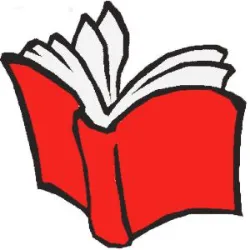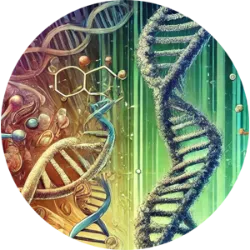Literature of Discovery and Colonization
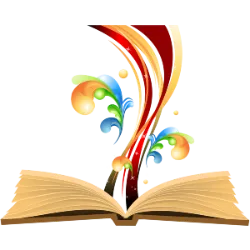
The Quinhentismo was the first literary period in Brazil, developed in the 16th century, during the arrival of Portuguese colonizers. Marked by literature of a descriptive and informative nature, this period was not concerned with art, but rather with documentation and catechetics, serving the interests of the Crown and the Church.
The main characteristic of the Quinhentismo was the production of texts that portrayed the newly discovered lands, their natural riches and the indigenous peoples. The greatest example of this style is the Letter of Pero Vaz de Caminha (1500), which described the first impressions of Brazil. In addition, Jesuit priests, such as Father Anchieta, produced catechetical texts for the conversion of the indigenous people, mixing religious elements and native languages.
The historical context of the Quinhentismo was marked by mercantilism, Portuguese maritime expansion and the project of colonization of Brazil. The literature of this period reflected the European vision of the new land, without yet presenting its own cultural identity.
Although it does not have significant aesthetic value, the Quinhentismo was essential for recording the first contacts between Europeans and indigenous people, giving rise to Brazilian literary history.
The Literature That Revealed the Truth

Realism was a literary movement that emerged in the second half of the 19th century, breaking with the idealism and subjectivity of Romanticism. Marked by objectivity, social criticism and psychological analysis of characters, Realism sought to portray life as it really was, without idealizations or sentimental exaggerations.
In world literature, the movement was marked by Madame Bovary (1857), by Gustave Flaubert, as well as the works of Honoré de Balzac and Leo Tolstoy. In Brazil, Realism began in 1881, with the publication of Memórias Póstumas de Brás Cubas, by Machado de Assis, which innovated by creating an ironic and questioning narrator. Other important works include O Mulato, by Aluísio Azevedo, and Dom Casmurro, also by Machado, which delved deeper into psychological analysis and the famous enigma of Capitu.
The historical context of Realism was influenced by the Industrial Revolution, the advancement of scientific and positivist thought, and the social transformations of the 19th century. In a period marked by inequality and urban changes, realists used literature to denounce hypocrisies and contradictions in society.
The movement influenced modern literature, consolidating a new way of narrating, based on reason and critical observation of reality.
Test yourself with one of these challenges 👇
You can still go deeper with those who are experts in the subject: lombadaquadrada
Discover some interesting facts about Literature
The History of Western Literature
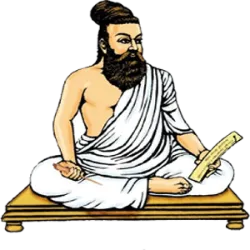
Western literature has a rich history dating back to Ancient Greece, where works such as Homer’s The Iliad and The Odyssey laid the foundations for epic storytelling. These poems, which deal with heroism, war and journey, have profoundly influenced the development of literature over the centuries. However, the transition from the Middle Ages to the Renaissance brought about a significant shift in human thought. Writers such as Dante Alighieri, with The Divine Comedy, and Geoffrey Chaucer, with The Canterbury Tales, presented a new perspective on man, morality and society, reflecting the changes of the time.
In the 18th century, the Enlightenment spurred a new wave of questioning, with authors such as Voltaire challenging institutions and social norms, promoting reason as the key to progress. The Industrial Revolution also had a significant impact on literature, with writers such as Charles Dickens using their works to expose the inequalities and hardships of the working classes, as in Oliver Twist and Great Expectations. Thus, Western literature has constantly evolved, being a mirror of the social, political and cultural changes that have shaped the modern world.
Pre-Modernism
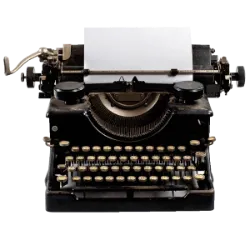
Pre-Modernism was a Brazilian literary period that developed between the end of the 19th century and the beginning of the 20th century, serving as a transition between Realism/Naturalism and Modernism. Although not considered an official literary school, the movement brought significant changes in the form and content of literature, paving the way for the aesthetic renewal of 1922.
Marked by a critical view of Brazilian reality, Pre-Modernism highlighted themes such as social marginalization, regionalism and the contradictions of the country after the abolition of slavery. The language became more direct and colloquial, approaching popular orality. Among the main authors, Euclides da Cunha, with Os Sertões (1902), addressed the harsh reality of the Canudos War. Lima Barreto, in Triste Fim de Policarpo Quaresma (1915), criticized society and exaggerated nationalism. Monteiro Lobato highlighted the daily life of the countryside with Urupês (1918).
The historical context of Pre-Modernism was influenced by the beginning of the Old Republic, the growing urbanization and social conflicts. This period prepared the stage for the radical transformation promoted by Modernism, which would break with the academic traditions in Brazilian literature.
Asian and African Literature

Asian and African literature offers rich narratives that explore the culture, society and conflicts of their times. In medieval Japan, Sei Shōnagon's The Pillow Book and Murasaki Shikibu's The Tale of Genji highlight life in the imperial court, and are some of the first literary works written by women and precursors of the modern novel.
In Turkey, Nobel Prize winner Orhan Pamuk's Snow reflects on identity, politics and religion, addressing the dilemmas between tradition and modernity in the country.
African literature, marked by colonialism and its consequences, found strong expression in authors such as Wole Soyinka from Nigeria, with The Lion and the Jewel, a play that discusses the impacts of Western culture on African society. In Kenya, Ngũgĩ wa Thiong’o, in A Grain of Wheat, addressed the country’s struggle for independence and the scars left by British rule.
These works represent global literary diversity and show how Asian and African literature continue to influence readers around the world, bringing new perspectives and essential voices to the literary landscape.
Science Fiction and Modern Fantasy
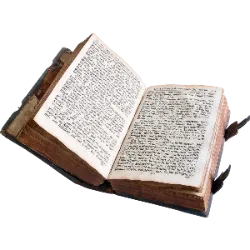
Science fiction and fantasy have captivated millions of readers around the world, creating unique universes and visionary narratives. In Dune, Frank Herbert explored an intergalactic empire full of political intrigue and disputes over control of the spice melange. William Gibson, with Neuromancer, anticipated cyberspace and influenced digital culture.
The master of science fiction, Isaac Asimov, revolutionized the genre with Foundation, a saga about the collapse and reconstruction of a galactic civilization. Before him, H.G. Wells brought alien invasion to literature with The War of the Worlds, while Mary Shelley, in Frankenstein, inaugurated scientific horror by creating the immortal monster of literature.
In fantasy, J.R.R. Tolkien transported readers to Middle Earth with The Hobbit, the work that gave rise to The Lord of the Rings and influenced the entire genre. George Orwell, with 1984, created a dystopia that remains relevant by portraying a world dominated by surveillance and the manipulation of truth.
These classics of science fiction and fantasy not only expanded the limits of imagination, but also made profound reflections on humanity, technology and the future.
Works that Challenged Literature

The 20th and 21st centuries brought a series of modern classics that profoundly impacted readers and the world literary scene. In The Color Purple, Alice Walker addressed themes such as racism, abuse and the fight for women's freedom, bringing to light the difficult reality of black women in the southern United States, in a narrative of resilience and redemption.
Toni Morrison, with Beloved, not only portrayed the scars of slavery, but also explored the post-Civil War and the weight of historical memory, creating a dense and poetic work that became a landmark in American literature.
With The Da Vinci Code, Dan Brown managed to combine mystery, history and conspiracy theory in a suspenseful plot that captivated millions of readers, in addition to generating debates about religion and art.
In The Book Thief, Markus Zusak gave a new perspective on World War II by telling the story of a young woman and her bond with books in a context of suffering and loss.
These works offer a profound reflection on social, cultural and historical issues, and remain essential in contemporary literature, addressing human complexities in a unique and engaging way.
Test yourself with one of these challenges 👇
HOME
